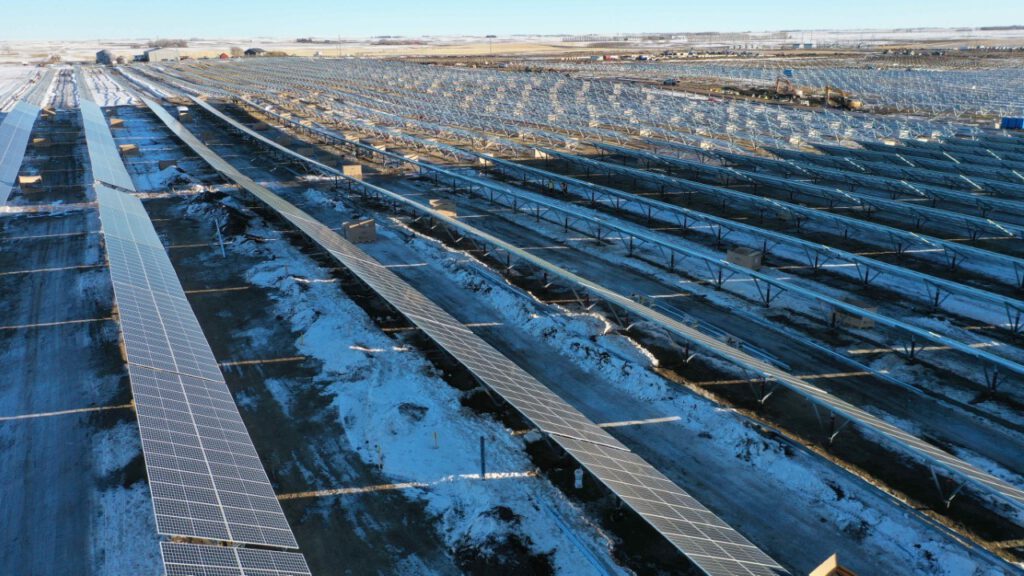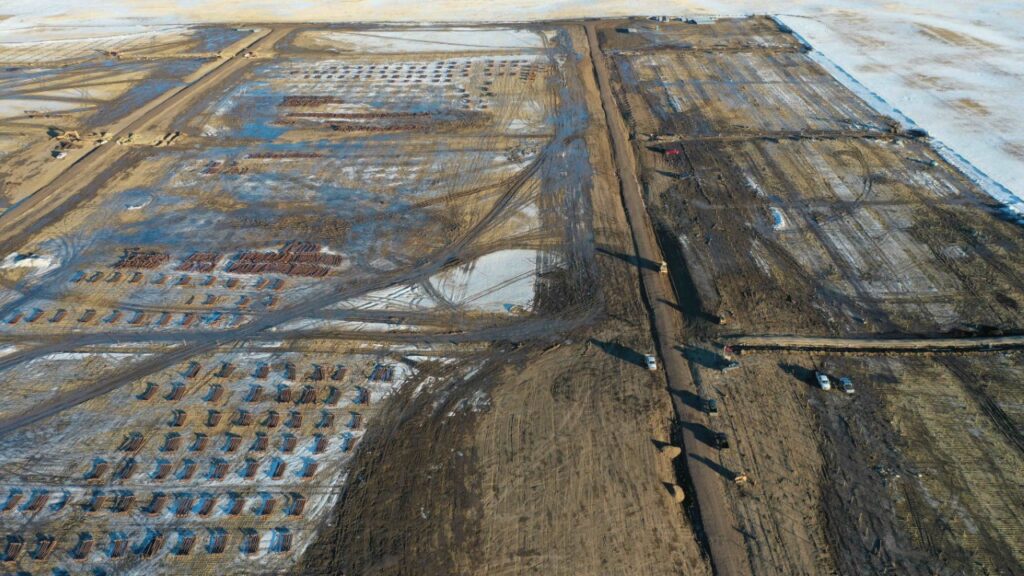Pioneering Solar Power Purchase Agreement: Bullfrog Power, a division of Spark Power & Royal Bank Canada

Projects Sponsor
In 2019 Bullfrog Power pursued its first Alberta-based Power Purchase Agreement (PPA) alongside Royal Bank of Canada, a long-standing Bullfrog customer, who shared the same goal, that of making a contribution to the transformation of the Alberta power grid to renewable energy sources. The two organizations partnered in search of viable projects to support and in 2020, Bullfrog and RBC executed a PPA with BluEarth Renewables to enable the construction of two new utility-scale solar arrays – the first such agreement in Canada where multiple organizations partnered to get a new project built.

In 2019, Bullfrog Power decided to pursue its first Alberta-based Power Purchase Agreement (PPA) in order to contribute to the transformation of the Alberta power grid, which is today roughly 90% supplied by fossil fuels. RBC, a long-standing Bullfrog customer, shared the same goal and the two organizations partnered in search of viable projects to support. In late July 2020, Bullfrog and RBC executed a PPA with BluEarth Renewables to enable the construction of two new utility-scale solar arrays totaling 39 MW.
The aim of the project was to extend Bullfrog’s impact by enabling the development of new, utility-scale renewable energy in Canada through assumption of risk and introduction of an innovative contracting structure. Additionally, RBC and Bullfrog set emission reductions and accelerating clean economic growth as key objectives.
There were several notable firsts related to this agreement, including the first ‘virtual’ PPA whereby customers who do not purchase physical electricity in Alberta can still catalyze the construction of new renewable capacity, thereby guaranteeing a revenue stream to the project. Without a natural hedge, however, the kind that is enjoyed by physical consumers of Alberta power, this entails significant risk, risk that must be actively managed over the term of the contract. Bullfrog became the first energy marketer in Canada to sign a PPA. RBC became the first financial institution to sign a PPA and as a result of their first time PPA-ing, the Burdett and Yellow Lake Solar project is finished construction.

The project was completed in early 2021, and Bullfrog and RBC will each purchase 31,500 megawatt-hours annually – all together, that’s enough electricity for almost 5,200 homes. Additionally, the two solar projects will result in emissions reductions of well over 50,000 tonnes of carbon per year and inject over $70 million of capital investment into Alberta’s economy.
What a project like this does is demonstrate that companies across Canada can contribute to the greening of Alberta’s grid. Part of why that matters is because Alberta’s energy grid currently generates more greenhouse gases than all other nine provincial grids combined. With the province aiming to retire its coal fleet before 2030, the race to determine what will replace coal’s capacity in the system, renewables or gas, is on and who wins that race really matters.
If Canada wants to avoid locking in future emissions through long-lived, fossil-fuel-burning assets, it’s critical that renewables win this race. The retirement of coal-fired generation in Ontario has been the largest single source of GHG reductions nationally over the past decade. Now Alberta has an opportunity to have an even greater impact on Canada’s 2030 goals.
Decarbonizing the grid opens the door to the decarbonization of still more emissions-intensive sectors of the economy––through electrification: transport, space and water heating, and many industrial processes. In combination, the decarbonization of the grid and these uses of the electricity can enable the 50% reduction in GHGs Canada requires to do its part in meeting IPCC targets consistent with limiting warming to well under two degrees.
That PPA may turn out to be an essential part of Canada’s contribution to the fight against climate change, a Bullfrog in the coal mine, perhaps signaling an end to Alberta’s reliance on unsustainable energy.













